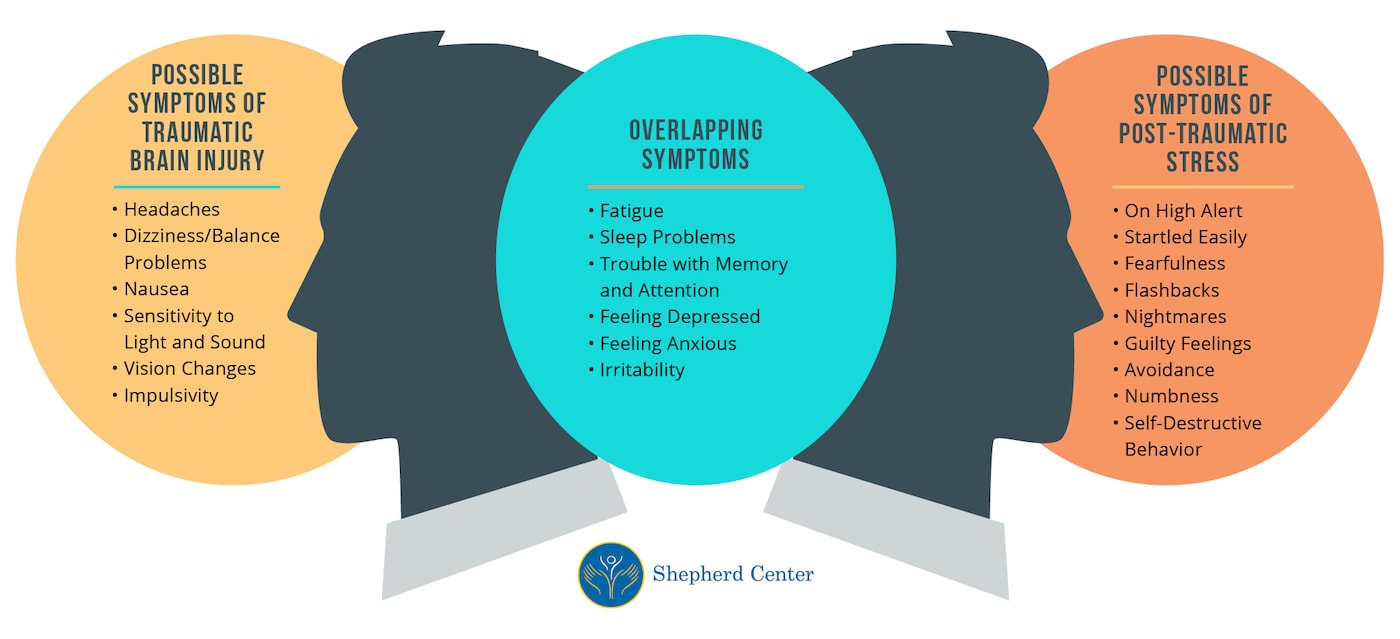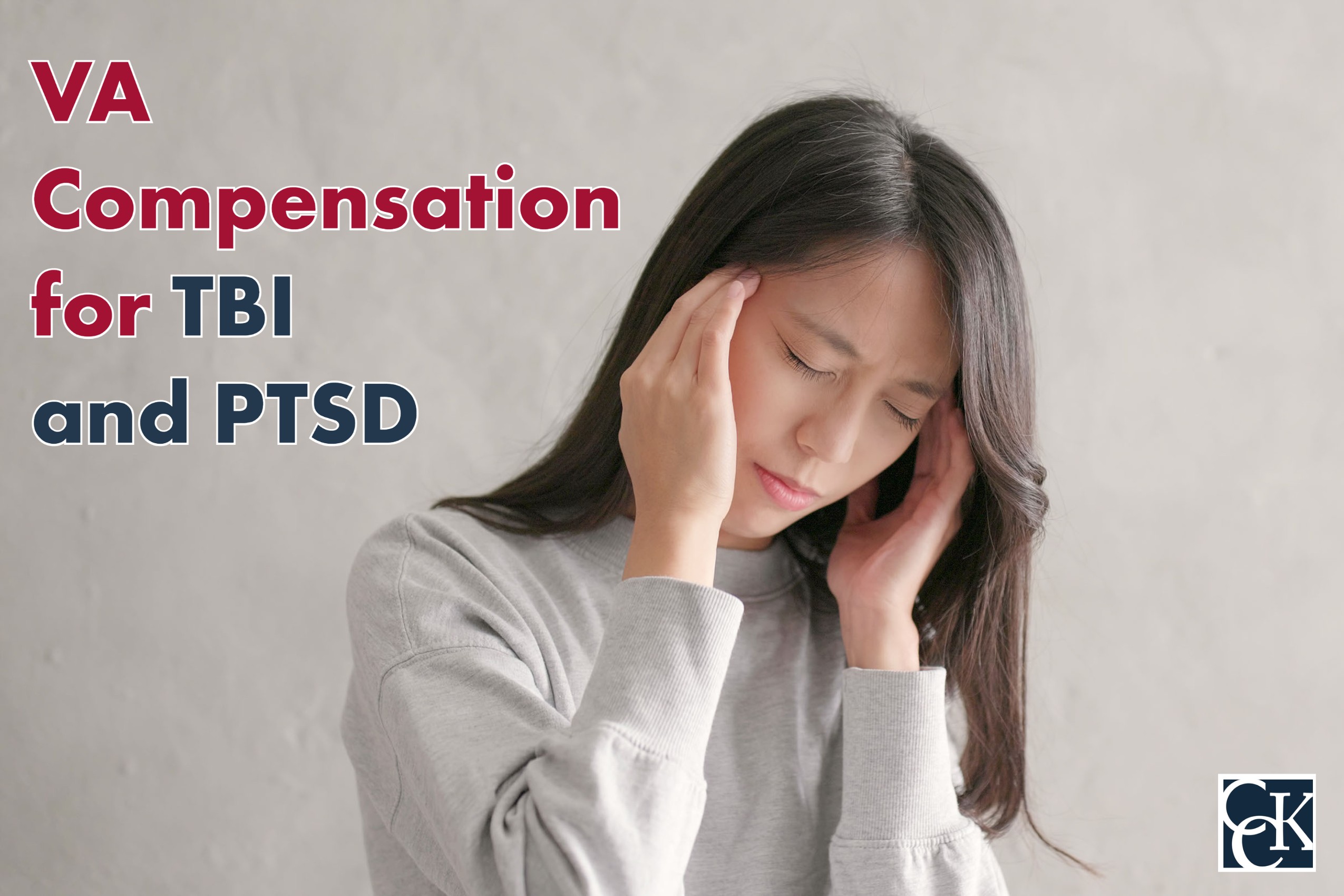Tbi Symptoms In Veterans - Traumatic brain injury (TBI) is one of the most common injuries seen in former combat veterans. In fact, healthcare professionals have seen an increase in the consumer price index among military personnel who have served in Iraq and Afghanistan over the past decade. This guide analyzes the basics of TBI and how the VA evaluates them, as well as the requirements for confirming contact with a secondary service. Trends in TBI among veterans who served in Afghanistan and Iraq are also being examined.
Traumatic brain injury (TBI) is a violation of the function of the brain as a result of impact or vibration of the head or penetrating damage to the brain. A closed head injury occurs when the brain is not opened. A penetrating head injury, or open head injury, occurs when something pierces the skull and ruptures the dura mater, the outermost membrane that surrounds the brain.
Tbi Symptoms In Veterans

There are several signs and symptoms to be aware of after a head injury. This includes:
Va Disability Compensation For Tbi Vs. Ptsd
Memory loss is the most common cognitive impairment. Some people are diagnosed with TBI when they have difficulty walking in a straight line.
Others seek help when they have speech problems caused by muscle weakness. TBI typically has neurobehavioral effects such as depression and personality changes, as well as chronic pain and substance abuse disorders. A neurologist can rule out other causes and attribute these symptoms to TBI.
It is important to note that the symptoms of TBI can vary from person to person. The severity depends on the nature of the injury, for example, closed or penetrating traumatic brain injury. When a veteran files a brain injury claim, the VA considers several factors.
Typically, a person with a more severe TBI will have more severe symptoms. However, even a mild TBI can affect a veteran's social, emotional, cognitive, or physical health.
Repetitive Blast Exposure In Mice And Combat Veterans Causes Persistent Cerebellar Dysfunction
According to a report by the Defense and Veterans Brain Injury Center (DVBIC), between 2000 and 2019, more than 414,000 veterans and military personnel suffered traumatic brain injuries (TBIs). While many of these cases are mild, their long-term effects are only now being discovered as more and more veterans suffer from cognitive, behavioral and psychological disorders related to their injuries. However, many servicemen and veterans fail to make a connection between the trauma they have received and its long-term consequences.
If you're applying for a disability, it's important to understand the VA's disability criteria for TBI, as well as the medical evidence and symptoms they take into account to get a rating.
The VA assesses TBI symptoms as residual effects on current levels of mental or cognitive function, emotional and behavioral function, and physical function. Through this full body view, the VA can assign a disability rating.

To begin with, it is important to note that VA defines cognitive functions as memory, concentration, attention, and executive functions of the brain.
Co Occurring Traumatic Brain Injury, Ptsd Symptoms, And Alcohol Use In Veterans
The severity of TBI symptoms can vary from day to day and from person to person. TBI can temporarily or permanently impair brain function. Structural damage may not be detected with current technology. Therefore, VA is also required to assess subjective symptoms.
You may have been diagnosed with a mild, moderate, or severe TBI around the time of your work injury. VA cannot assess your disability based on these classifications while you are on the job. Remember that your disability rating is based on your current level of functioning at the time of your application.
VA rates TBI at 0, 10, 40, 70, and 100 percent. They understand that there are extreme cases that require scores above 100%, such as when a veteran is unable to work due to an injury.
The VA has acknowledged an outdated brain injury assessment schedule that needs to be updated. In 2008, the VA revised the rating scale criteria. When the VA evaluates a veteran's TBI balance against the old version, the veteran may request a review against the new code. This is despite the fact that his disability has worsened since his last review.
More Than Just Headaches: 7 Truths Behind Military Traumatic Brain Injury
The VA will review the Veteran's rating under the new codes to determine if the Veteran should receive a higher rating. In this case, VA will treat the application as an application for a rating upgrade. It should be noted that the VA does not take effect until October 23, 2008.
To break down the numerical rating system, the VA rates TBI at 0, 10, 40, 70, and 100 percent. They understand that there are extreme cases that require scores above 100%, such as when a veteran is unable to work due to an injury. Then the VA must account for unemployment. These ratings are called Special Monthly Compensation (SMC). There is one specifically for TBI called SMC-T.
To break this down further, VA has a specific definition of "assistance and service". The veteran must prove that he is unable to perform certain day-to-day functions and demonstrate a need for assistance and participation. It includes:

If a veteran can prove that all of the above factors are correct, they may qualify for a 100% or higher unemployment rating. This entitles them to monthly special injury compensation.
Veterans Recovering From Traumatic Brain Injury
In addition, the severity of TBI injury is considered based on four factors:
Your disability is determined by your score on each severity indicator, as well as your current dysfunction in each of the three areas of disability.
The best way to establish a service connection for a TBI is to document blows to the head. Even mild concussions can have long-term effects if you keep repeating them for a long time. However, if documentation is not completed at the time of the incident, creating a TBI Help Desk Contact should include three important points.
Veterans with other conditions that develop as a secondary result of traumatic brain injury, such as parkinsonism, dementia, depression, and others, may be eligible for additional service connection benefits.
Treating Traumatic Brain Injury In Veterans
When a veteran applies for Disability Benefit due to a TBI, they may also receive Non-Essential Service Connection Benefit. This means that the veteran has other conditions that developed as a secondary result of TBI.
Officials actually adjusted the rules for connecting secondary services for TBI in 2013, linking several diseases to the condition. These conditions include:
All of this can be applied to a secondary service binding claim unless there is clear evidence to the contrary. Because the above conditions may interfere with your ability to work and perform daily functions, you may decide to have a VA disability assessment.

Another secondary disability associated with TBI service may be post-traumatic stress disorder (PTSD), especially if the TBI was the result of combat experience. In fact, the two diagnoses are so closely related that assessment procedures overlap. If you have moderate TBI and symptoms of PTSD, PTSD is considered an occupational disability secondary to TBI. Be sure to discuss both issues with your healthcare provider.
Traumatic Brain Injury (tbi) Awareness Virtual Session
Any service-related secondary disability claims must follow the same process as the primary claim, including gathering documentation of the illness and establishing a medical link linking the disability to a current TBI diagnosis.
If you are unable to work because of your service-related disability, you may qualify for full disability individual unemployment (TDIU). To receive the allowance, you must:
The TDIU is especially important for veterans with severe TBI who require ongoing care.
If your TBI claim has been denied and you need help, contact Hill & Ponton for a free, no-obligation consultation.
Did You Know: March Is Brain Injury Awareness Month?
Examples of acceptable evidence may include medical records of previous examinations, veterans' statements, records of post-TBI treatment, and eyewitness accounts related to the original injury. All of this evidence must have taken place during or shortly after TBI.
Thus, some veterans may be eligible for benefits based on initial TBI and secondary service status. Because combining these qualifications can be tricky, it's important to gather as much evidence as possible and work with a reputable attorney to frame your case. This creates a strong demand for disability benefits.
If your application does not contain the information VA needs to determine disability, you may be required to take a Compensation and Pension (C&P) exam.

This examination is usually done by VA medical staff at the VA Medical Center to either refute or confirm your claim. Before the exam, you must submit all of your medical records and documents to the VA for verification upon arrival.
How Va Tbi Ratings Are Evaluated For Compensation
The health care provider who administers your C&P exam evaluates your health for the purposes of your VA application. After completing the C&P exam, they write a report and send it to the VA.
Signs of tbi in veterans, ptsd symptoms in vietnam veterans, tbi veterans, ptsd symptoms in veterans, ptsd symptoms in war veterans, veterans and tbi, signs and symptoms of ptsd in veterans, tbi in veterans, tbi treatment for veterans, common symptoms of ptsd in veterans, veterans with tbi, symptoms of tbi in adults
.jpg)
0 Comments